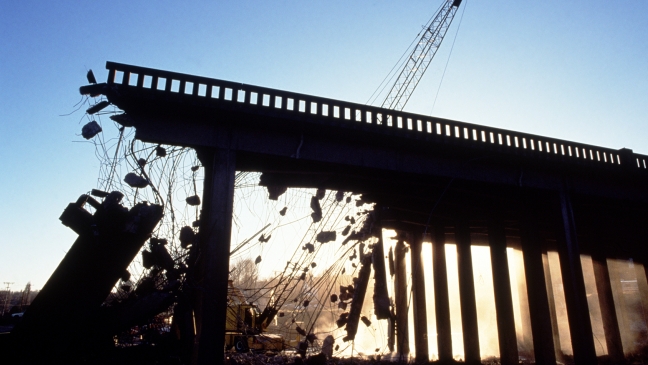With so many things going wrong in the country all at once, it’s easy to let each new case study in failure wash over you.
Today’s National Audit Office (NAO) report into the state of school buildings could easily get buried under stories about rising mortgage rates, more doctor strikes, or the potential collapse of Thames Water.
But it’s important that it gets some attention because, despite being written in the technical language of NAO documents, it is utterly damning - and the safety of our children is at risk.
A shocking state of affairs
Around 24,000 school buildings in England, 38 per cent of the total, are beyond their design life, requiring ongoing maintenance to sustain, at high cost - not least that 700,000 pupils are in buildings that need to be rebuilt.
The Department for Education has been trying to get a better grip on the problems across the estate but still doesn’t have a full list of the ones at greatest risk of collapse.
It’s worth pausing on these two dryly written sentences: “Since summer 2021, DfE has assessed the threat to safety in school buildings as a critical risk. It does not consider its existing mitigations as sufficient to bring the likelihood of this risk materialising down to acceptable levels.”
This is an extraordinary situation to be in.
Years of underinvestment
The DfE are well aware that there has been a dramatic underinvestment in buildings. At the last Spending Review, it asked for £7 billion a year to try to recover the situation. They got £3 billion.
Repeatedly, the Treasury has refused to take this issue seriously enough letting school infrastructure deteriorate to secure short-term savings at high long-term costs; the longer these buildings are left, the harder they will be to repair.
It’s exactly the same situation in the NHS and other parts of the public sector. One of the core problems of the British state is serial underinvestment in infrastructure.
A major mistake
The last Labour government had set up a programme, called Building Schools for the Future, to rebuild all the secondary schools in the country (though it should be said that many of the biggest problems now are with old primaries).
Unfortunately, this programme was designed during the years of plenty, with high costs on expensive architects who didn’t always appreciate how much noise and chaos 1,000 teenagers can create. It was never going to survive the financial crash.
But the coalition government’s decision to completely cancel the programme was a huge mistake, and one I was directly involved in. I’ve said before it’s my biggest career regret.
Rather than cancel it and try to pitch something new to the Treasury, we should have kept it in place but simplified the model, reduced the average cost and re-phased the rollout to keep it within whatever budget we could wrangle out of the chancellor.
Since then, things have just drifted. In not a single year have the DfE had the resources they’ve asked for.
Labour must plan ahead
Every Spending Review has prioritised other more “productive” forms of capital spending, as if the fact a school doesn’t offer an economic return, like a road, means it is somehow valueless. And here we are with many thousands of children at critical risk of a roof falling on their heads.
With interest rates now rocketing, it will now be much harder for either this government or a future Labour one to unlock the investment needed. An opportunity has been lost, possibly for a very long time.
But, despite the number of pressing demands, money is going to need to be found for this one. Ideally proactively because it only happening reactively after a tragedy doesn’t bear thinking about.
My proposal for Labour is that they take the £1.5 billion that will be secured from VAT on private school fees and assign that to a 10-year £15 billion programme on top of existing capital.
Even that won’t be enough but it would be a start. And what better way to sell their private school policy than as a contribution from the wealthiest in the country to rebuild the crumbling schools that the rest of the country uses?
Sam Freedman is a senior fellow at the Institute for Government and a former senior policy adviser at the Department for Education





